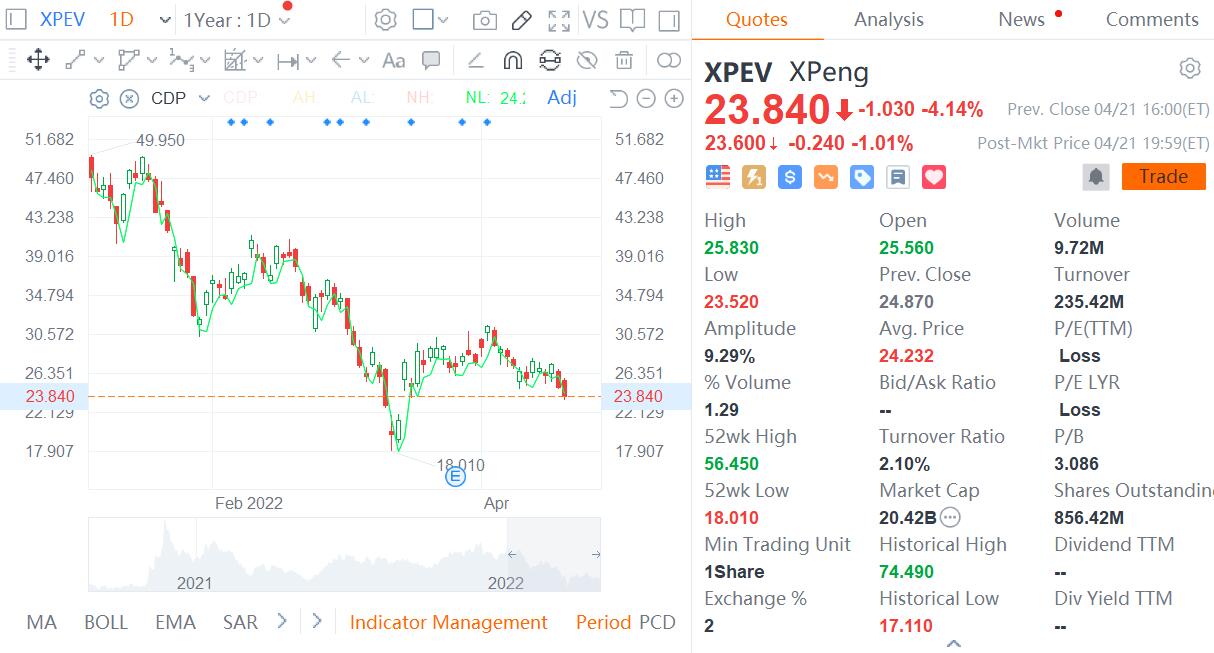ARK's Cathie Wood buys more Xpeng shares
ARK Invest sold 93,160 shares of Tesla on Thursday and bought more shares of Xpeng as well as another Chinese company, Niu Technologies.
ARK Invest, managed by Cathie Wood, one of the best-known US investors, continued to sell Tesla while increased its position in Xpeng Motors (NYSE: XPEV, HKG: 9868) as well as another Chinese company.
ARK Invest, through its ARK Autonomous Tech. & Robotics ETF (ARKQ), bought 93,466 shares of Xpeng on Thursday, representing about 0.148 percent of the ETF's total position, according to the latest trading records.

Prior to that trade, ARKQ held 919,008 shares of Xpeng worth about $22.86 million, or 1.53 percent of its total position. The stock was in the 22nd position among the ETF's holdings.
ARKQ also bought 51,210 shares of Chinese electric scooter company Niu Technologies (NASDAQ: NIU) on Thursday, valued at about $432,720. The stock declined 0.94 percent to $8.45 on Thursday.
Previously ARKQ held 2,465,291 shares of Niu Technologies worth about $21 million, or 1.4 percent of the ETF's position.
ARK Invest continued to sell Tesla (NASDAQ: TSLA) on Thursday, as Ark Innovation ETF (ARKK), ARKQ, and ARK Next Generation Internet ETF (ARKW) sold 67,544 shares, 14,169 shares, and 11,447 shares, respectively.
This means that ARK sold a total of 93,160 shares of Tesla worth about $93.9 million on Thursday.
Late last year, Wood bought Xpeng for the first time as the Chinese company's share price continued to fall.
On March 25, ARKQ bought 420,057 shares of Nio, worth about $8.4 million, or 0.5 percent of the ETF's total position. Since then, ARK has not increased its position in Nio.
Earlier this month, Wood revealed why she bought Xpeng and Nio in a Bloomberg TV interview:
You know really distributing goods and services into lower tier cities for example, or providing transportation.
So Xpeng and Nio, we have but they're very low margin. It's all about next gen transportation in a world where you know human-driven cars are still, relative to the eligible drivers, still very low percentage. So, we're interested there.

